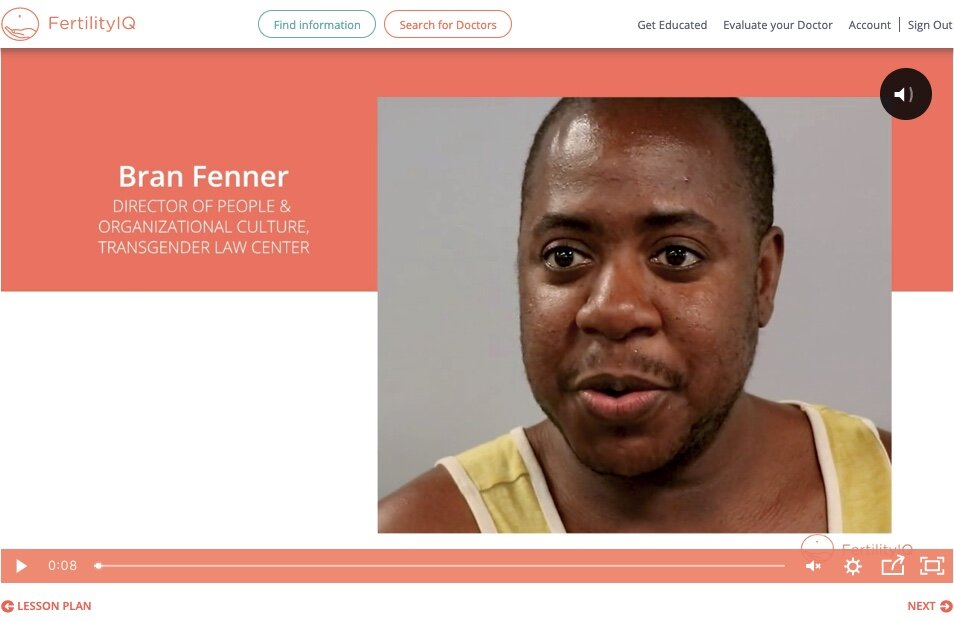
Trans Fertility Resource Library
Filter by Topics.
- BIPOC 5
- COLAGE 2
- abortion 4
- allyship 4
- april 4
- assisted reproductive technology 4
- autism 1
- baby 1
- book 2
- by trans for trans 11
- coming out 3
- doula 3
- estrogen 7
- fertility 18
- fertility preservation 11
- gender creative parenting 5
- hospital birth 1
- inducing lactation 6
- insurance 1
- ivf 4
- lactation 6
- media 5
- medical 9
- neurodiversity 1
- nonbinary 10
- nongestational parent 1
- parenting 5
- partners 2
- pregnancy 19
- research 3
- social 4
- surrogacy 1
- testosterone 4
- trans men 22
- trans women 11
- unknown donor 1
- youth 4
All Resources
Lactation and Testosterone: What do we know?
A new case study looks at a transgender man who took testosterone and continued bodyfeeding his toddler.
Realities of Miscarriage
What happens when a pregnancy is lost? Miscarriage is already a tough subject in our culture, and when you’re a trans person going through it… things can be especially complicated. Read more for info on trans miscarriage.
Abortion in the Transgender Community
Roughly 12% of transgender men have terminated a pregnancy, which is just under the national average. Trans people may choose abortion for many different reasons, and have many options available as they make their decision. Read more about what resources are available for transgender people considering abortion.
Trans Dads Tell Doctors: “You can be a man and have a baby”
One of the most persistent myths transgender men and nonbinary people hear from doctors is that testosterone has sterilized them, experts say. While testosterone generally blocks ovulation, trans men can get pregnant while taking it, particularly if they are not taking it regularly.
It’s just one example of the misinformation and discouragement transgender men say they face from the medical establishment when they decide to get pregnant — a problem advocates and experts blame on a lack of training and research around transgender health care, as well as doctors’ biases.
Fertility care has opened more doors for trans people to have biological children
More trans people are publicly out and having families of their own, inspiring others to do the same. This increased visibility is likely to prompt fertility care providers to realize that this kind of care needs to become standard. The difficult part will be figuring out how to make that care accessible to everyone.
Fertility Practices, Coverage Lacking for Transgender People
Transgender people see themselves as aligned with cancer patients who also face infertility when undergoing treatment. Egg freezing was once considered experimental, but that changed in 2012 when it was reclassified as an elective procedure, opening the door for more use. That prompted both cancer patients and transgender people to think about how to prove to insurance companies that fertility preservation is part of medically necessary treatments that need coverage.
What Doesn’t Bend, Breaks: Resiliency Strategies for Trans Folks on Fertility Journeys
For trans people, advocating for oneself within medical systems is hard. Here’s a concrete tool to make things a little easier when you have to work with providers who miss the mark.
FertilityIQ: Trans Men and Fertility
Going into transition, or even after, fertility can seem like an afterthought. But the decisions made throughout transition can have lasting impacts on fertility. We break down the important decisions you'll need to make about fertility preservation and reproductive options, balancing that with the desire for various steps in gender-affirming transitions. We also cover resiliency strategies with tactical steps you can take to advocate for yourself during the process.
FertilityIQ: Trans Women and Fertility
Going into transition, or even after, fertility can seem like an afterthought. But the decisions made throughout transition can have lasting impacts on fertility. We break down the important decisions you'll need to make about fertility preservation and reproductive options, balancing that with the desire for various steps in gender-affirming transitions. We also cover resiliency strategies with tactical steps you can take to advocate for yourself during the process.








